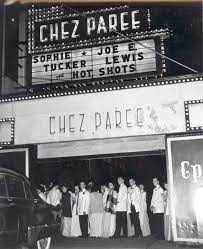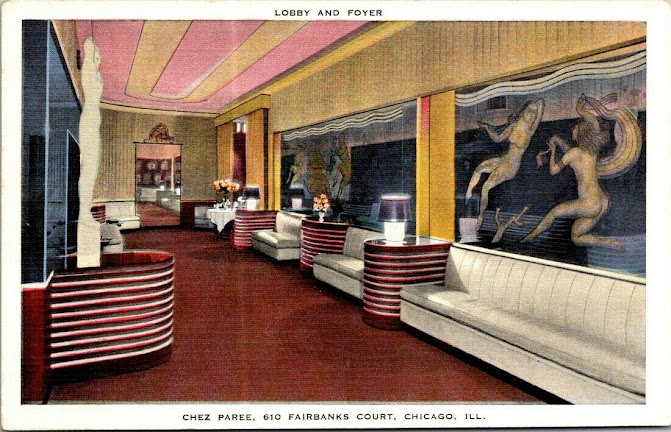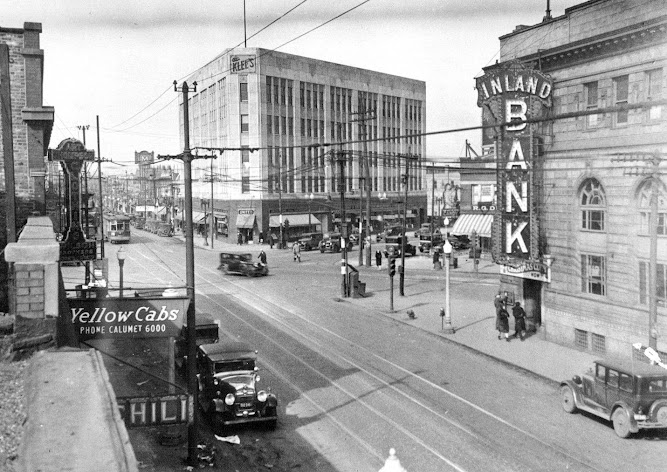The Chez Paree was a Chicago Dinner Theater and a Key Club best known for its stellar cuisine and top entertainment.
 |
| A CLUB KEY |
The Chez Paree opened in 1932 at 610 North Fairbanks Court, in The Streeterville neighborhood of Chicago. The fully air-conditioned club was a thriving example of golden age entertainment. They hosted famous musical groups, comedians, big band talent, famous dance bands, and some vaudeville.[1]
There were casino games played in the Key Club.
Popular entertainers included Jimmy Durante, Martin & Lewis, Sophie Tucker, Tony Martin, Danny Thomas, and Sammy Davis and Sammy Davis Jr. This is where Chicagoans took business people, politicians, and out-of-town family and friends to impress them when showing off our city.
The floor was crowded with tables. There was a large dance floor in front of the stage. The Cocktail Lounge had a circular and glamourous bar.
The Chez Paree closed in 1960.
 |
| Chez Paree, Liberace in The Key Club. |
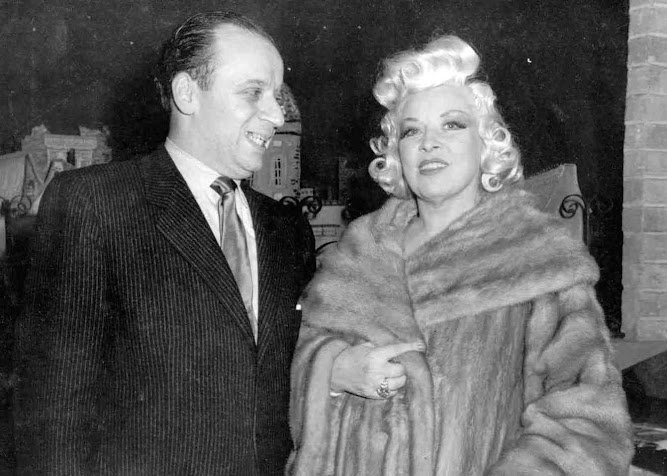 |
| Mae West with Chez Paree co-owner Jay 'Jack' Schatz in the mid-1950s after a night of performances. |
 |
| Louis 'Satchmo' Armstrong in The Key Club at The Chez Paree. |
 |
| Bob Hope, Mike Wallace, and his wife Buffy broadcast a radio show from The Chez Paree. |
 |
| Jimmy Durante with The Chez Paree co-owners Jay 'Jack' Schatz and Donjo Medlevine in The Key Club. |
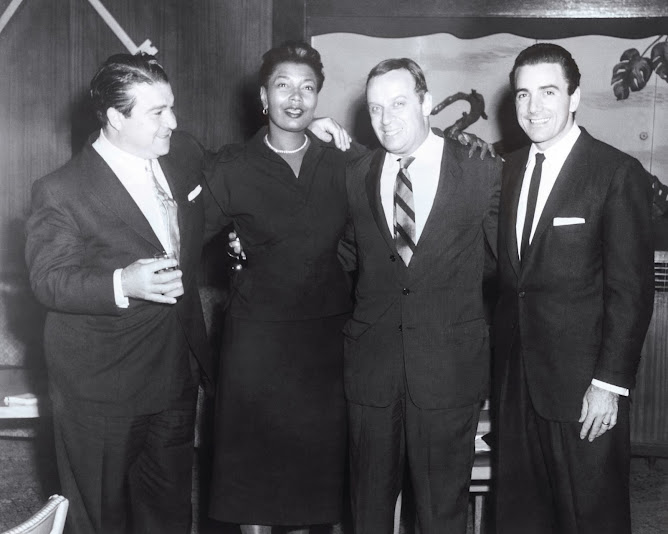 |
| Pearl Bailey and husband Louie Bellson (far right) in The Key Club. |
 |
| Lena Horne in The Chez Paree Key Club. |
 |
| Nat King Cole with co-owners Jay 'Jack' Schatz and Donjo Medlevine in The Key Club at The Chez Paree early-1950s. |
Compiled by Dr. Neil Gale, Ph.D.
[1] Vaudeville is a theatrical genre of variety entertainment born in France at the end of the 19th century. In the United States, the term connotes a light entertainment popular in the states from the mid-1890s until the early 1930s. Vaudeville, more so than any other mass entertainment, grew out of the culture of incorporation that defined American life after the Civil War (1861-1865). The development of vaudeville marked the beginning of popular entertainment as big business, dependent on the organizational efforts of a growing number of white-collar workers and an increase in leisure time, spending power, and changing tastes of an urban middle-class audience. Shows usually consisted of 10 to 15 individual, unrelated acts, featuring magicians, acrobats, comedians, trained animals, jugglers, singers, dancers, and other odd acts.

